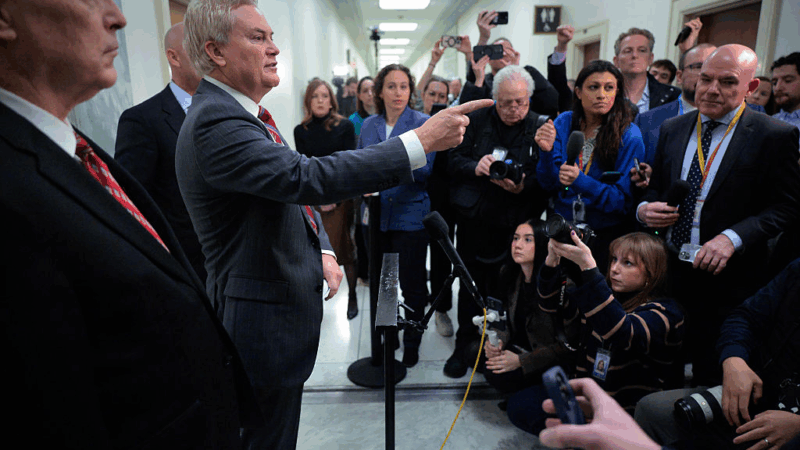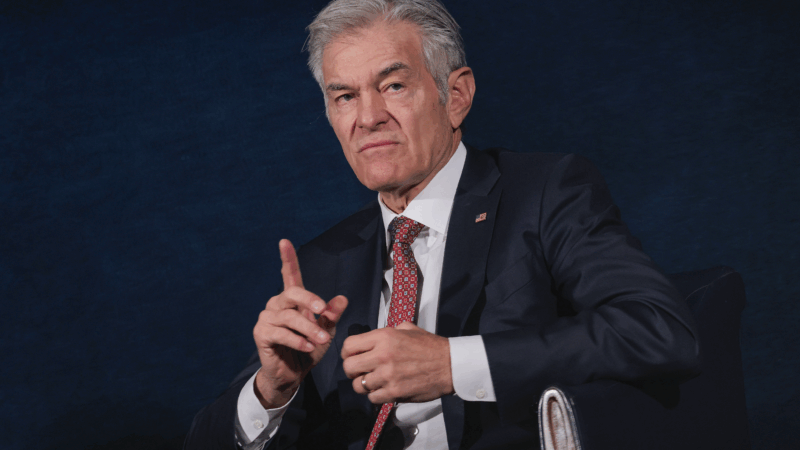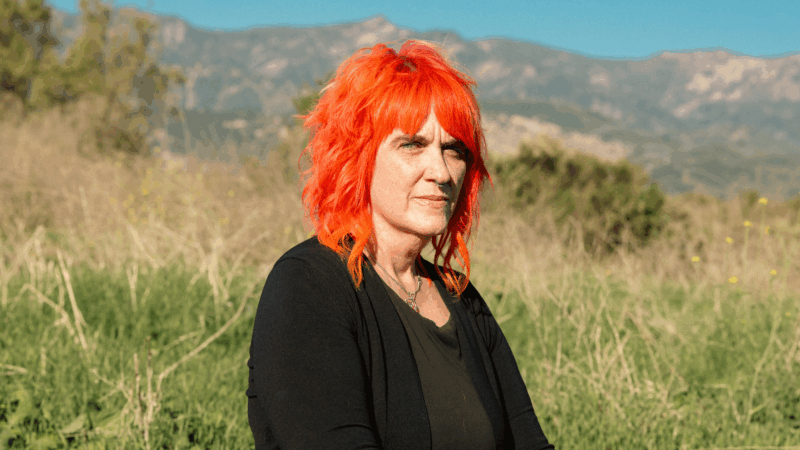The ‘Oscar’ of food prizes goes to a Brazilian who harnessed the power of bacteria
Mariangela Hungria, a microbiologist in Brazil, spent decades looking for bacteria in the soil that could act like fertilizer, boosting farmers’ harvests. But she faced a lot of skepticism.
“When I started my career, everybody was like, ‘You’re crazy! You will never succeed. This will never be possible,'” she recalls.
Today, her work was rewarded with the World Food Prize, which recognizes advances in agriculture and nutrition. Bestowed by the World Food Prize Foundation since 1987, it comes with a cash award of $500,000.
Hungria has spent her entire career as a scientist with the Brazilian Agricultural Research Corporation (EMBRAPA), a storied institution that’s widely credited with turning Brazil into an agricultural superpower. Fifty years ago, Brazil was a net importer of food. Today, it’s the world’s biggest exporter of soybeans and several other major crops. Brazil has surpassed the U.S. to become the leader in satisfying China’s appetite for soybeans.
Inspired by her grandmother
Hungria’s love of science was kindled in childhood, she says, thanks to a “magical grandmother” who taught her about backyard plants and the soil that nourished them.
“One day, it was a holiday, she gave me one of her books to read. It was a book about the life of microbiologists,” Hungria recalls. She spent that whole night reading about bacteria and fungi. The next morning, she announced to her family that she, too, would become a microbiologist.
She got her Ph.D. from the Federal Rural University of Rio de Janeiro and went to work for EMBRAPA in 1982. She followed in the footsteps of another pioneer of Brazilian science, Johanna Döbereiner, who had begun hunting for microbes that could boost the productivity of crops.
Hungria isolated useful strains of bacteria called rhizobia which inhabit nodules on soybean roots, capture nitrogen from the air and convert it into a form that feeds the plant. She also documented benefits from a strain of another soil microbe, Azospirillum, which releases hormones that stimulate the growth of roots, allowing plants like corn, wheat and pasture grasses to capture nutrients more efficiently.
“She’s a phenomenal scientist. A role model for many people, including myself,” says Leo Bortolon, a soil scientist from Brazil who’s now a researcher at North Dakota State University. According to Bortolon, most seeds of major crops like soybeans or corn in Brazil now are coated with microorganisms before planting.
A bacterial boon
There’s still some debate about how effective these bacteria are under different soil and climate conditions. But in Brazil, at least, studies have shown that the microbes allow farmers to get by with using less chemical fertilizer, saving money and reducing burdens on the environment.
Microbial treatments are more widely used in Brazil, compared to the U.S., Bortolon says, because farmers in Brazil have greater confidence in them. They’ve been studied more intensively in the soil and climate conditions of Brazil, and the government only allows companies to sell microbial products if there’s solid evidence that they work.
“Mariangela played a role in that, how to regulate the market,” Bortolon says.
Hungria is the second researcher from EMBRAPA to receive the World Food Prize. The previous winner, Edson Lobato, pioneered ways to grow crops in a vast region of grasslands and scattered trees called the Cerrado.
That feat gave EMPRAPA an almost mythic status in Brazil. For many people, especially of an older generation, “EMBRAPA is this heroic institution that conquered the wild lands of the interior, made them productive, part of this nation-building effort,” says Ryan Nehring, from the International Food Policy Research Institute in Washington, D.C.
Until about 50 years ago, the Cerrado was considered unsuitable for crops. The soil was too acidic. But EMBRAPA’s scientists showed farmers how to add lime and other materials to the soil and turn that land into productive soybean fields. Brazil’s farmers seized the opportunity to grow crops on an unprecedented scale.
The government’s policies favored farmers who already were successful, allowing big farmers to get even bigger. The agricultural boom “is predicated on extreme inequality,” Nehring says. Some farms are so large that it can take four or five days to drive from one side to the other.
Many in Brazil celebrate that accomplishment. Nehring recalls a researcher at EMBRAPA telling him that “‘what took you guys [in the U.S.] 200 years to do’ —- meaning industrialized agriculture —- ‘took us less than 50.'”
A vision for the future
Others at EMBRAPA, however, including Mariangela Hungria, are taking a second look at that legacy. Brazil’s agriculture in the future, they say, should look different from its past. Brazilian president Luiz Inácio Lula da Silva, known to most simply as Lula, has pushed EMBRAPA to focus more on reducing poverty among Brazil’s rural poor, for instance.
Hungria wants to see women taking a bigger role. Farming has been shaped by a kind of masculine attitude, she says: claiming more land, competing to be “the winner of production.”
Women are more likely to shift the focus of farming toward environmental sustainability, Hungria says. Caring for land that’s already been claimed rather than trying to clear more. Focusing not just on the size of the harvest but on which crops deliver better nutrition.
That’ll be part of her speech, she says, when she formally accepts the World Food Prize later this year. . And Hungria says she’ll use the cash she has won to fund a new award that will recognize women who are working in agriculture, microbiology, communications or for the benefit of people with special needs.
After a 2-decade ban, kites fill Lahore’s skies during a Pakistani springtime festival
People gathered on rooftops to enjoy flying kites for the first time in years, celebrating the spring festival of Basant. The activity had been banned due to injuries and deaths during past celebrations.
Dear Life Kit: I officiated their wedding. Now I think they should get a divorce
An NPR listener says they've become increasingly concerned by their friends' marriage and feels a sense of duty to fix their relationship problems. Can they tell them what they really think?
Under oath and unredacted: The top political stories on Epstein this week
Attorney General Pam Bondi faced pointed questions on Capitol Hill, and lawmakers continued to press the Justice Department about its decision to redact certain information.
Dr. Oz pushes AI avatars as a fix for rural health care. Not so fast, critics say
Dr. Mehmet Oz, who heads the Centers for Medicare and Medicaid Services, is advancing a $50 billion plan to modernize rural health care.
ChatGPT promised to help her find her soulmate. Then it betrayed her
ChatGPT sent screenwriter Micky Small down a fantastical rabbit hole. Now, she's finding her way out.
Ilia Malinin, figure skater favored for gold, finishes 8th
Malinin, undefeated since 2023, stumbled and fell multiple times, landing far off the podium. Mikhail Shaidorov of Kazakhstan won gold in an upset that shocked even himself.






